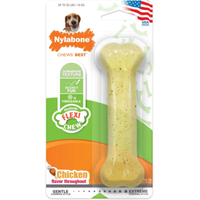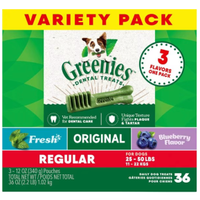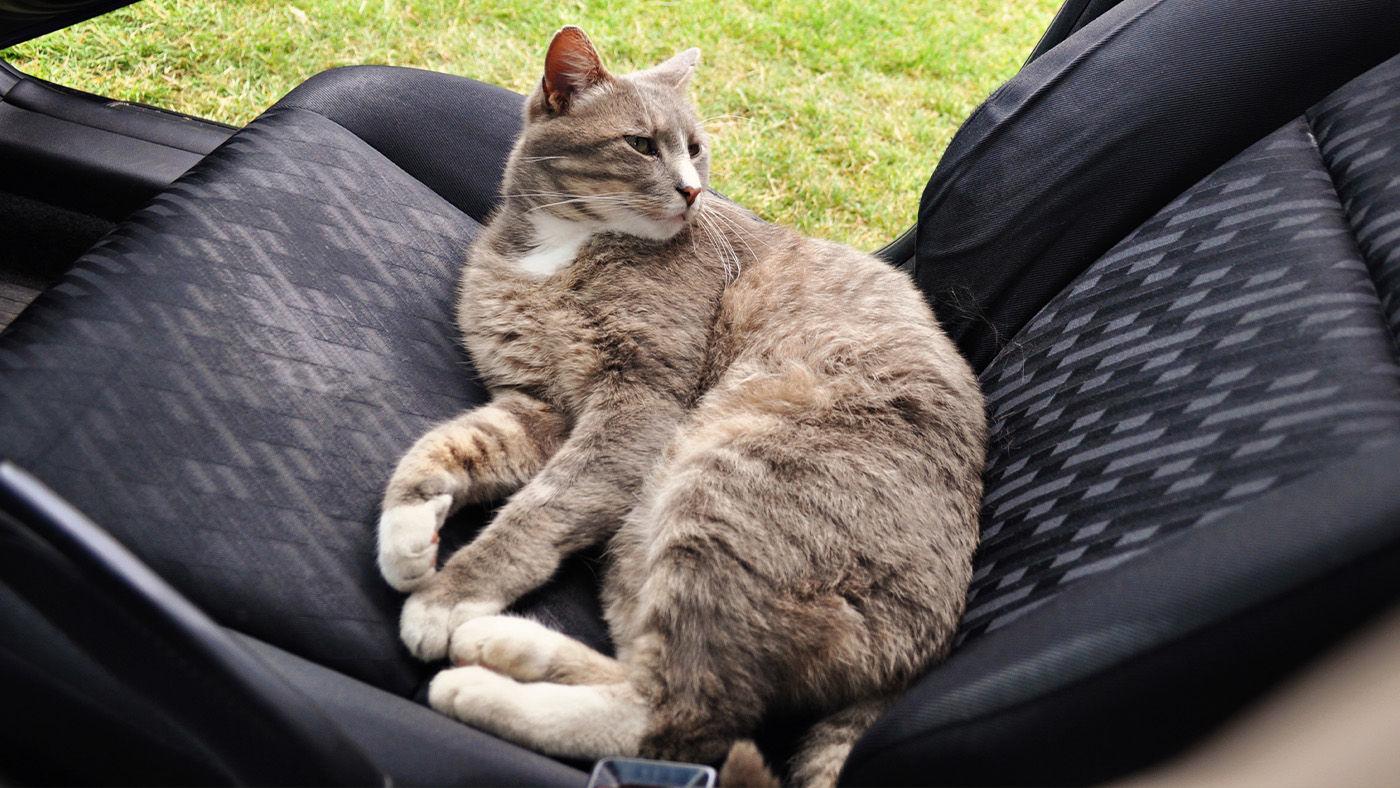Are antlers safe for dogs? A vet reveals the pros, the cons, and how to minimize any risk
We asked a vet, ‘Are antlers safe for dogs?’ The answer might surprise you!
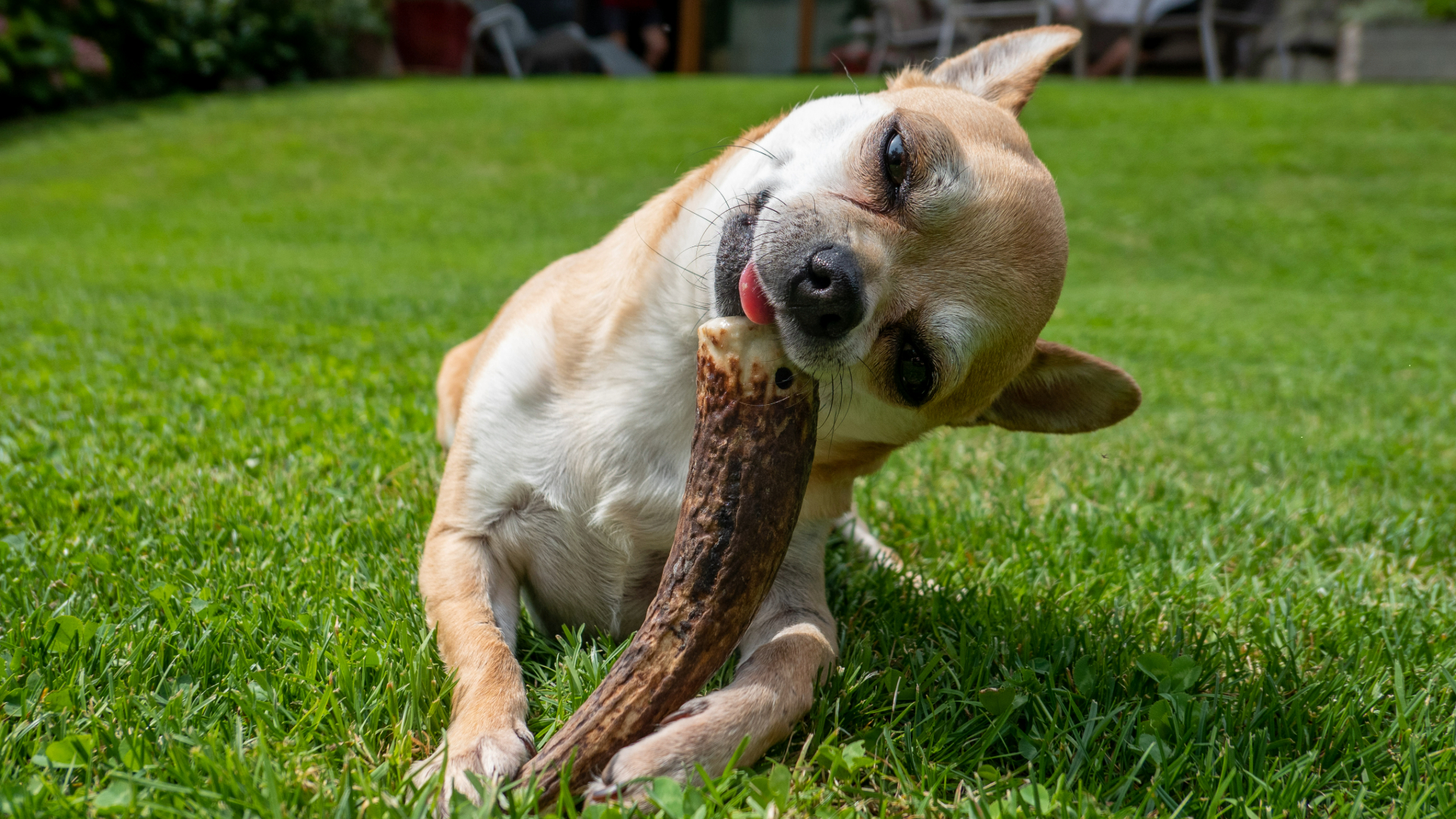
If you’re a pup parent, you might wonder, ‘Are antlers safe for dogs?’ Since they’re one of the longest-lasting dog chews and are completely natural, they’ve become a popular choice for many owners. Not only are they a good source of calcium, but they also provide friction against your dog’s teeth, which can help reduce tartar build-up.
While antlers offer several benefits for dogs, there is some controversy over whether they’re actually safe or if there are better alternatives on the market.
That’s why we spoke with Dr. Hannah Godfrey, an expert vet with 13 years of experience, to get to the bottom of this debate. Below, she shares the pros and cons and discusses whether antlers are safe for dogs of all breeds and ages.
Are antlers safe for dogs? The pros
Antlers have a naturally hard consistency. They provide a lot of friction against the teeth without the addition of any additives and preservatives. Because they are made of bone, they don’t contain the fat and calories of other chews, so they are unlikely to contribute to weight gain.
Their firm nature also means that they will keep your dog entertained for longer than a soft chew before they disintegrate. Antlers can also serve as a source of minerals, including calcium, making them a healthier option than some other chews.
Are antlers safe for dogs? The cons
With so many potential benefits, antlers may sound like the perfect choice. However, there are some significant potential hazards when it comes to antlers.
Unfortunately, antlers are so hard they can crack or chip your dog's teeth. Not only are broken teeth painful for your dog, they can also serve as a source of jaw infection. When a tooth becomes damaged and the pulp cavity is exposed, it must be extracted or a root canal must be performed. Some dogs chew antlers without any problems, but this is a relatively common side effect of antler-chewing.
When your dog chews an antler, large or sharp pieces of the antler can break off. These fragments can be swallowed and travel down your dog’s digestive system. If this occurs, antler fragments might cause an intestinal blockage or even pierce the stomach or intestines.
If your dog develops a blockage or the intestines are damaged, your dog may require emergency surgery. Unfortunately, even with aggressive treatment, some obstructions and intestinal perforations can be fatal.
Nylabone FlexiChew Chicken Flavored Dog Chew Toy
This chicken-flavored chew is recommended by vets and is much safer than antlers. It’s soft, and flexible and comes in four different sizes, helping to prevent destructive chewing and boredom.
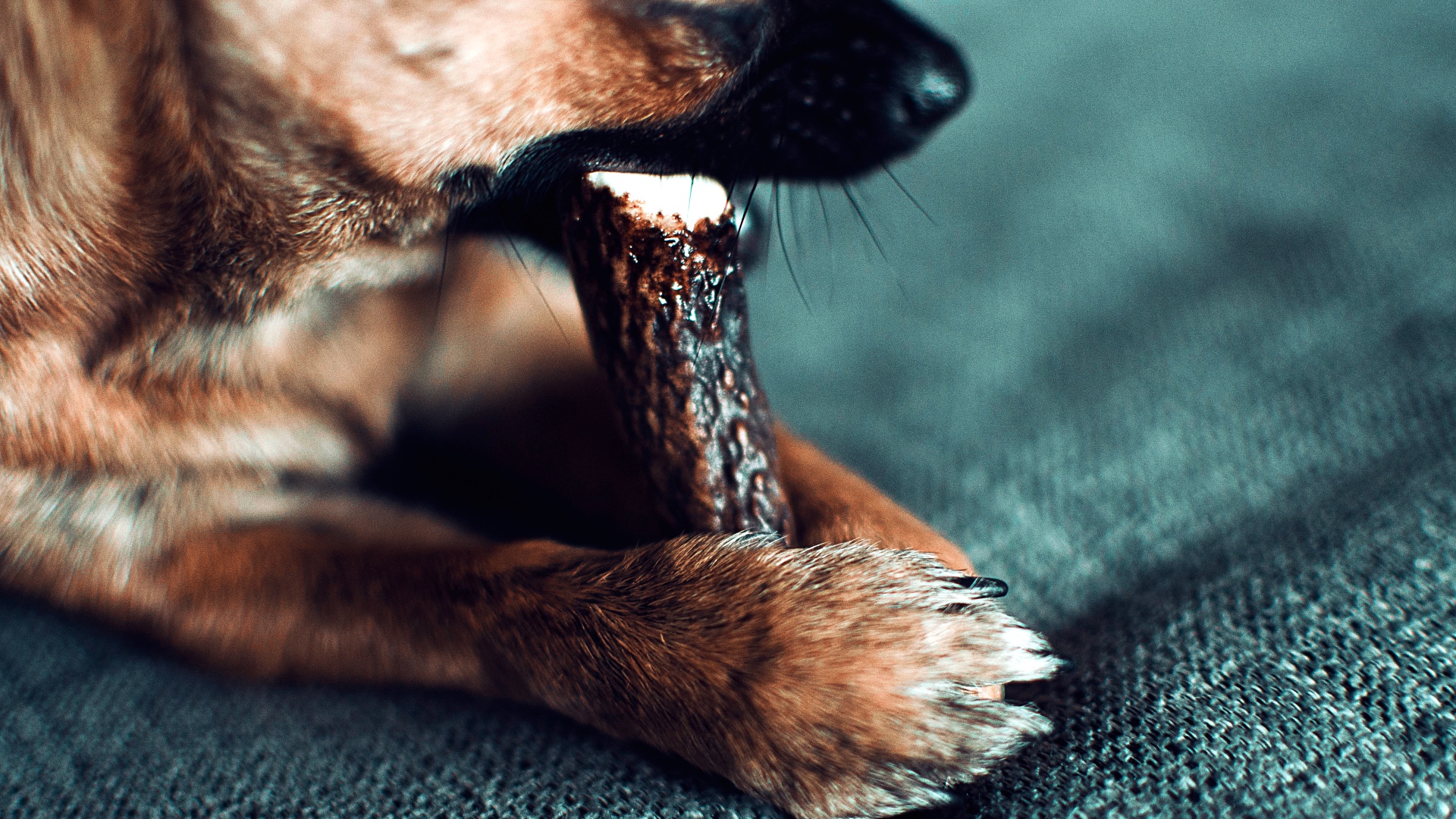
Are antlers safe for puppies?
Just like human babies, puppies are born with small temporary teeth (baby teeth). These teeth fall out and are replaced by adult teeth in the first six months of your puppy’s life. Puppy teeth are very fragile, with short roots, and they are easily damaged by chewing on firm objects like antlers.
In addition to their small teeth, puppies also have growing bones that are not yet fully mature. In some cases, a puppy’s jaw may not tolerate the force of chewing on an antler. This can lead to a jaw fracture. For similar reasons, small breed dogs are also more susceptible to damage to their teeth and jaws, so choosing an appropriately sized antler or avoiding them altogether is essential.
Greenies Dental Chews Regular Treats for Dogs
These tasty treats can help reduce plaque and tartar build-up on your dog’s teeth while providing a fun, safe outlet for chewing. They’re one of the best dental treats for dogs and are certified by the Veterinary Oral Health Council. They come in a range of sizes, including options for puppies.
At what age can puppies have split antlers?
Although split antlers are supposedly softer and more suitable for puppies, they still pose a risk. It’s best to avoid any antler chew until a puppy’s adult teeth have fully erupted and their bones are mature.
Dogs reach skeletal maturity at different ages, based on their size and breed, but most puppies should avoid antler chews until they are at least one year old.
How to minimize the risk of antler chews
Antler chews will never be entirely safe for any dog, and the risks of damage to the teeth, mouth, jaw, or guts will always be there. However, if you choose to give your dog antler chews, there are ways to minimize the risk:
1. Always supervise your dog
Always supervise your dog with an antler chew. These chews can cause choking, and your dog can swallow loose antler fragments. Careful supervision can decrease the risk of these harmful effects.
2. Get the right size
It's also very important to choose the right antler size for your dog. Smaller dogs could crack their jaw on a large antler, while large dogs could swallow a small antler and develop an intestinal obstruction.
3. Check for damage
Finally, check your dog’s antler chews regularly for signs of cracks, damage, or sharp edges. If you notice any weakened areas, be sure to dispose of the antler immediately.
4. Don't boil antlers
Since many of the risks associated with antlers are due to their hard texture, you might wonder how to soften deer antlers to minimize the risk to your dog. Do not boil antlers before giving them to your dog. Boiling antlers makes them more likely to splinter, and these shards can block or damage the intestine.
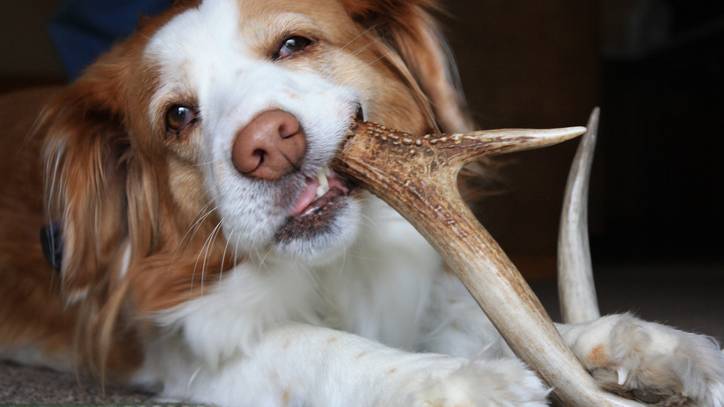
How long do antlers for dogs last?
Antlers for dogs can last six months to a year, providing long-lasting entertainment for your furry friend. However, they can become damaged and weakened during use. It’s important to check antler chews regularly, so you can see any signs of weakness early.
Preventing your dog from using an antler if it is visibly cracked or splintered will reduce the risk associated with these chews.
So, are antlers safe for dogs?
Although there are potential benefits associated with antlers for dogs, there are also significant health risks associated with these chews. Your safest bet is to avoid antler chews and use an alternative chew product.
Many other chew toys are available to provide long-lasting chewing enjoyment for your dog, and you can keep your dog’s teeth clean through daily toothbrushing and feeding dry kibble.
If you do decide to give your dog antlers, be sure that your dog only has access to them under direct supervision. Inspect antlers daily, and dispose of them if they begin to look cracked or weakened. These simple steps can help make antler chews as safe as possible.
Need something for your pup to sink its teeth into? Discover vet-approved dog chews for aggressive chewers.

Dr. Hannah Godfrey studied Veterinary Medicine at the Royal Veterinary College London. After graduating in 2011, Dr. Godfrey went on to become a veterinary surgeon, conducting surgery consultations on a range of animals at a small independent practice in Cardiff, South Wales, UK. Dr. Godfrey has a strong interest in soft tissue surgery. When she’s not helping animals back on their feet, Dr. Godfrey writes a number of veterinary and animal-focused articles.
PetsRadar Newsletter
Get the best advice, tips and top tech for your beloved Pets
Dr Hannah Godfrey is a small animal vet who graduated from the Royal Veterinary College in 2011 and began work straight away at a busy mixed practice. Initially, she treated all species, but focussed on small animals from 2014. She has a passion for soft tissue surgery, ultrasound, and canine and feline dentistry, having completed additional training in these areas.
- Megan MilsteadStaff Writer
